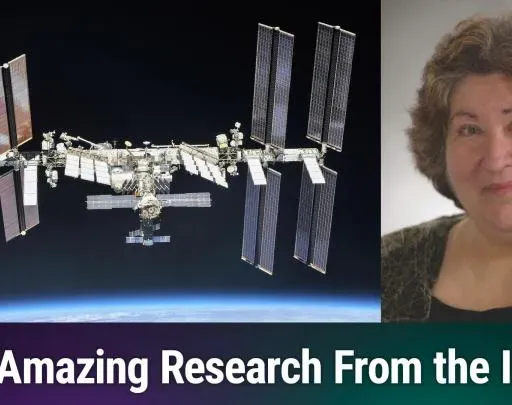
The International Space Station has been serving as a major research center in space for over 25 years, but its time is coming to an end with a planned deorbit in 2030. Should we end this expensive experiment in space, or are we squandering a $150 billion resource? Lynn Harper, the Lead for Integrative Studies at the NASA Ames Space Portal, joins us to discuss some of the amazing research taking place aboard the ISS. We've all heard about crystal growth and so forth, but how about the promising work done on cancer treatments? Or the growing of replacement retinas? Perhaps the potential breakthroughs for treating Alzheimer's disease might interest you? These and many more will be the focus of our conversation.
Headlines:
NASA Earth Science Faces Massive Cuts Under Interim Administrator Sean Duffy
James Webb Telescope Discovers New Moon Orbiting Uranus
SpaceX Gears Up for Starship Flight 10, Hopes for First Success of the Year
Main Topic: International Space Station Spinoffs & NASA's InSPA Breakthroughs
NASA's InSPA Program Pushes Space-Based Research for Terrestrial Benefits
Microgravity Research Triggers Life-Changing Advances in Medicine and Technology
Space-Grown Protein Crystals Revolutionize Cancer Treatments, Save Lives and Billions
ISS Tissue Engineering Enables Next-Generation Organ and Cell Therapies
Accelerated Disease Modeling in Space Fast-Tracks Drug Discovery for Alzheimer's, ALS, and Cancer
Space-Based Manufacturing Dramatically Improves Semiconductor and Fiber Optic Quality
The Case for Extending ISS Operations to Maintain Biomedical & Industrial Progress
Future Visions: Overlapping Space Stations and Expansion into Commercial Free-Flyers and Industrial Complexes
Hosts: Rod Pyle and Tariq Malik
Guest: Lynn Harper
Download or subscribe to This Week in Space at https://twit.tv/shows/this-week-in-space.
Join Club TWiT for Ad-Free Podcasts!
Support what you love and get ad-free shows, a members-only Discord, and behind-the-scenes access. Join today: https://twit.tv/clubtwit